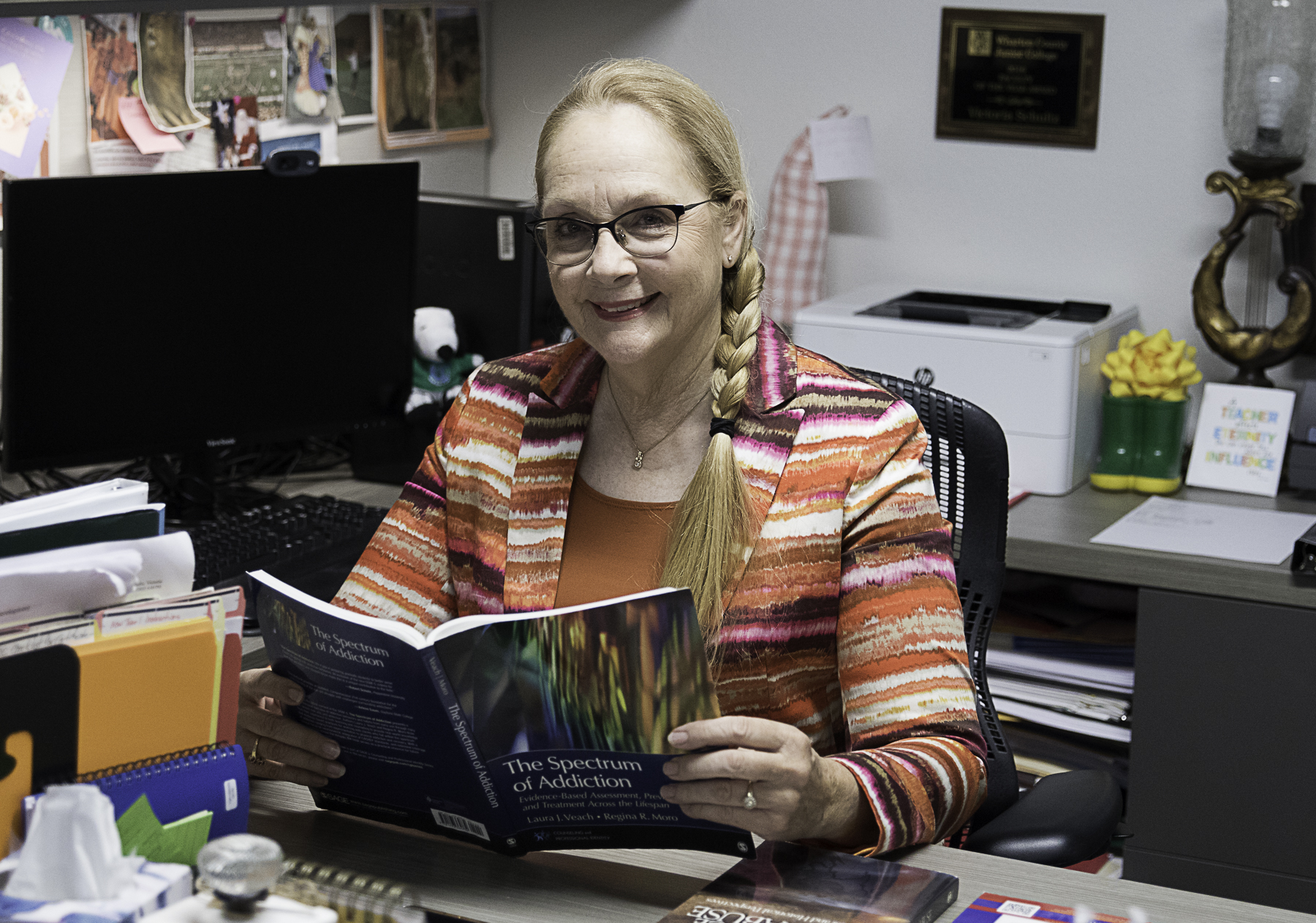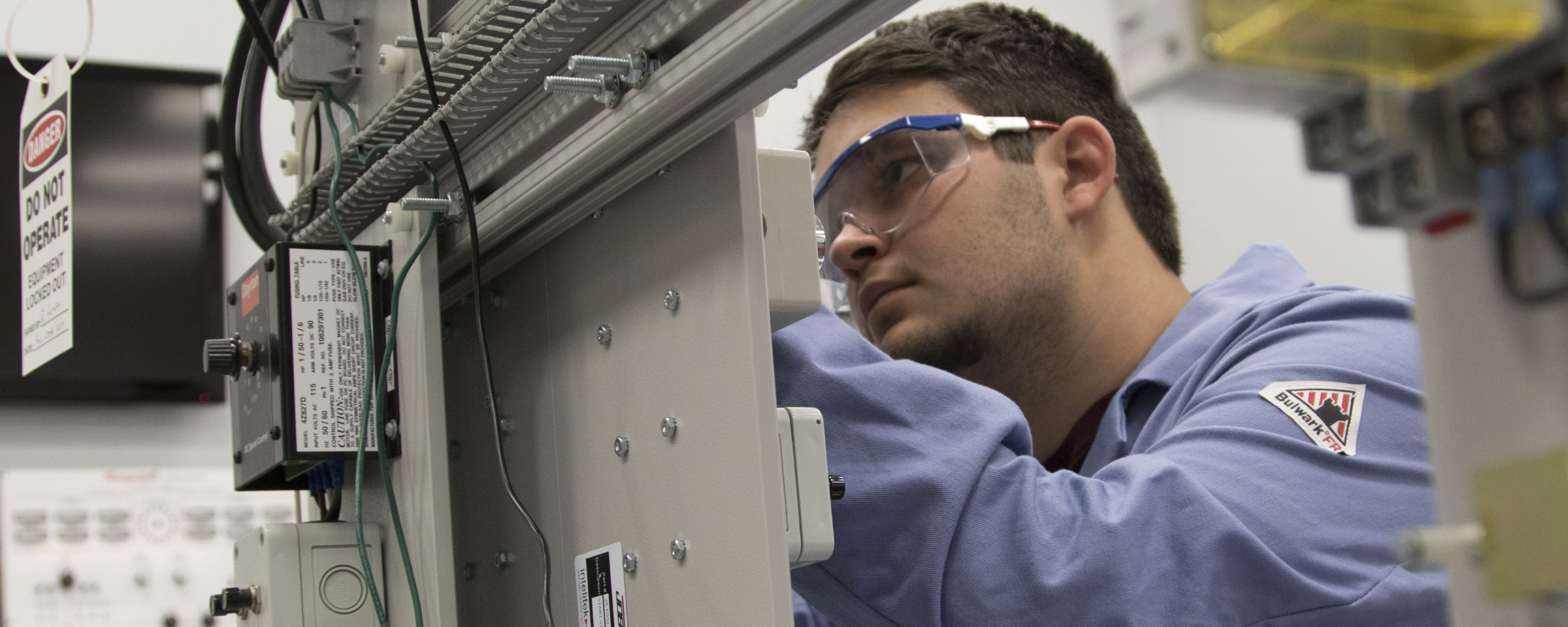
WCJC OFFERS NEW CHEMICAL DEPENDENCY COUNSELOR CERTIFICATE

Wharton County Junior College's Human Services Program will begin offering a new Chemical Dependency Counselor certificate this fall. Pictured is Program Director Victoria Schultz.
WHARTON, TEXAS – Wharton County Junior College will offer a new certificate program this fall to meet the growing need for mental healthcare. Through the college’s Human Services Program, students will be able to pursue a Basic Chemical Dependency Counselor certificate to help those struggling with substance use and abuse.
Classes begin on Aug. 26 at the Wharton campus. Enrollment is limited.
“Many Texas counties don’t have the mental health services they need,” said Program Director Victoria Schultz. “We are one of only a select number of programs in the state to offer this training.”
The Chemical Dependency Counselor certificate is a one-year program that prepares students for employment in several fields of study, including social work, human services, counseling psychology, addiction counseling, substance abuse counseling and chemical dependency counseling. Graduates may work with clients individually or in group sessions and help identify concerns over substance use and its impacts.
“This typically involves assisting clients to develop strategies to refrain from the use of substances and in developing a supported network for recovery and maintenance of being substance free,” Schultz said.
Schultz said a Substance Abuse and Mental Health Services Administration survey indicated that an estimated 11.3 million Texas residents are currently living with a substance use disorder, with more than 50 percent having a co-occurring mental health issue. The survey further determined that roughly 98 percent of the state’s 254 counties have a shortage of mental health professionals.
With the demand for substance use counseling expected to skyrocket in Texas by 27 percent over the next six years, the need for trained workers cannot be overstated.
“If the workforce shortage is not addressed immediately, Texans will continue to struggle with long-term and potentially life-threatening mental health conditions,” Schultz said.
Students obtaining their Chemical Dependency Counselor certificate will be well-equipped to help address that shortage. In addition to 18 semester hours of coursework, students must also complete a 300-hour practicum. Once they meet these standards and earn their certificate, they can immediately enter the workforce or pursue licensure for a higher-level position.
Learn more about careers in human services and their accompanying salaries at the U.S. Bureau of Labor Statistics website at www.bls.gov. For more information on the Chemical Dependency Counselor certificate, visit the college’s website at wcjc.edu or contact Schultz at victorias@wcjc.edu
###

